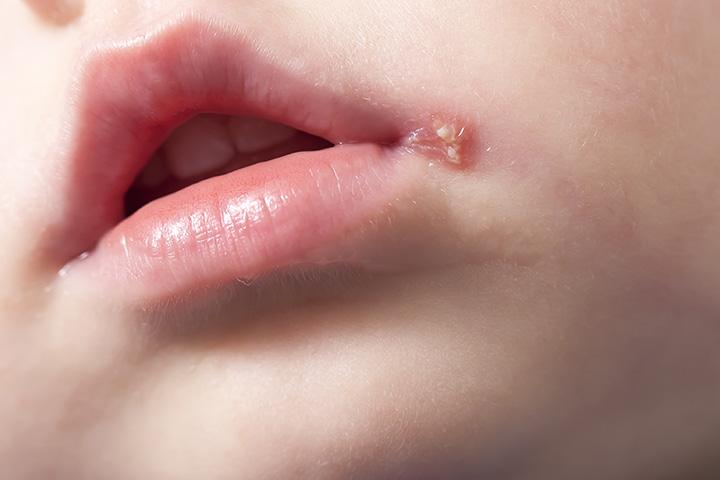
Cold sores are small sores, or blister-like lesions, that appear on the lips, chin, cheeks, inside the nostrils, and less frequently on the gums or the roof of the mouth.
They usually cause pain, a burning sensation, or itching before they burst and crust over.
There is no way to cure or prevent cold sores, but steps can be taken to reduce their frequency and duration.
- The herpes simplex virus strain HSV-1 normally causes them.
- They usually clear within 7 to 10 days without treatment.
- The virus is highly contagious and can be passed on through close direct contact.
Symptoms can include:-
- lesions, blisters, or ulcers on the tongue or mouth
- mouth or tongue pain
- lip swelling
- possible swallowing difficulties
- sore throat
- swollen glands
- high body temperature
- dehydration
- nausea
- headaches
There may also be an infection of the mouth and gums, known as gingivostomatitis. This lasts for 1 to 2 weeks, and it does not recur.
Pharyngotonsillitis, an infection of the throat and tonsils, may occur when the primary infection affects adults.
A cold sore will develop in several stages when it recurs.
- A tingling, itching or burning sensation around the mouth often indicates the start of a cold-sore outbreak. Fluid-filled sores, often on the edges of the lower lip, tend to follow this. Glands may start to swell.
- The sores often appear in the same place each time. Pain and irritation develop alongside the cold sore.
- The sores break and ooze.
- A yellow crust forms on top of the sores and scabs off to uncover pink skin that heals without scarring.
Most cold sores disappear within a week or two.
Diagnosis
The signs and symptoms are usually clear enough for a doctor to make a diagnosis, but they may also order a blood test.
In some cases, the doctor may take a sample of the fluid scraped from the cold sore to detect the presence of the virus.
Treatment
Most cold sore outbreaks clear up within 1 to 2 weeks without treatment.
Some ointments and antiviral medications may shorten the outbreak’s duration and alleviate discomfort and pain.



